“But what is this little belly?” For a few days now, your kitten’s belly seems to be swollen and hard . You have the impression that it is abnormally big. As a young parent, you are worried about its state of health and you are right. Several causes can be at the origin of this swelling, starting with a parasitic infection.
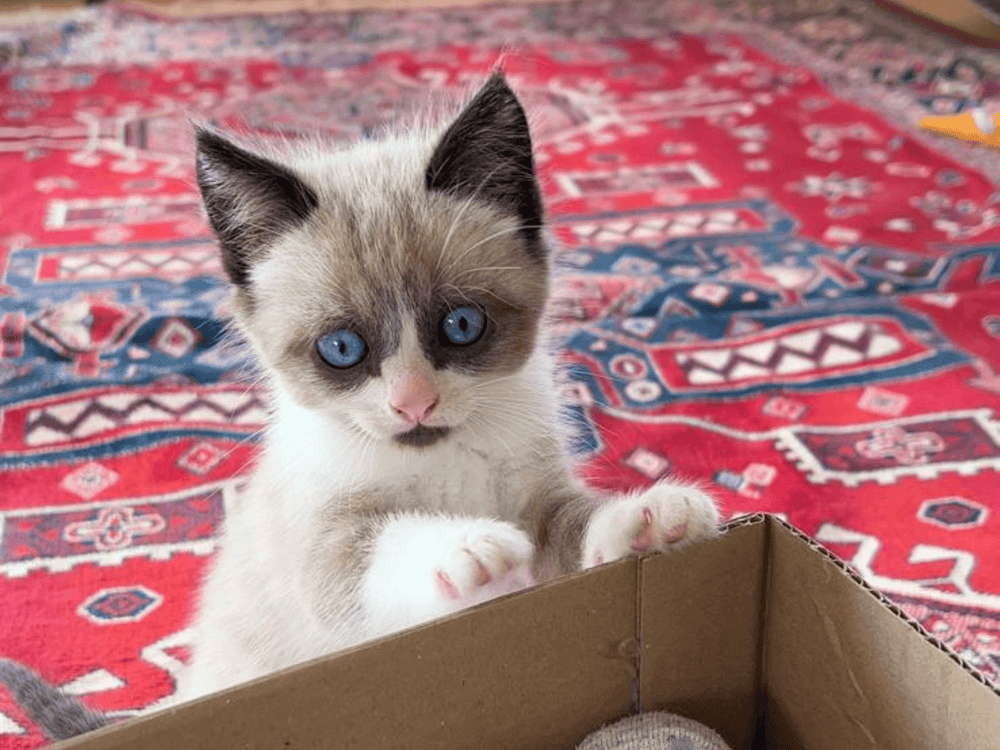
What's the cutest thing about a kitten? Without a doubt its eyes, its little paws or its soft belly. We almost want to eat it.
Kittens are the cutest beings on this earth (objectively speaking), but they are also the most sensitive; they can be subject to various pathologies and viruses. This is why it is important to take care of your kitten and especially to observe the slightest sign of a possible health problem. Among the most common: a swollen, swollen or abnormally large belly.
If your kitten has a swollen and slightly hard belly, here are the most common causes .
Important: Whatever the reason, consult your veterinarian so that he can make an accurate diagnosis!
Why does my kitten have a swollen belly?
A parasitic infection
The most common cause of kittens with a swollen belly is parasitic infection. Your kitten, especially if he and his mother have had access to the outdoors, may have intestinal worms. Note that kittens are not the only ones who can be infected with worms. Adult cats that have not been dewormed can too.
There are two types of worms : roundworms, which are caused by the ingestion of larvae or worm eggs, and flatworms, which are transmitted by the ingestion of a flea or by the consumption of raw food (meat, fish).
- Roundworms (ascarids, hookworms)
These are commonly found in kittens and cause bloating, but also other symptoms such as diarrhea, constipation, vomiting or even weight loss in cats . The parasites, which settle in the kitten's digestive system, absorb the nutrients present in your little feline's diet. They act as food "thieves" from inside its body.
This loss of nutrients can also cause deficiencies. Not assimilating all the nutrients necessary for its growth, your baby cat could suffer from growth retardation if it is not treated quickly.
- Flatworms (tapeworms, cestodes)
Tapeworms cause the same symptoms, namely a swollen belly, digestive problems (vomiting, diarrhea ), weight loss, loss of energy, a greasy and dull coat , etc. Some infected kittens also have a reduced appetite; they eat less, turn their noses up at their bowl of kibble and/or pâté.
How do I know if my kitten has worms?
Look at your cat's stool. If you see white dots, rice-like grains, or small white things that move, these are worms.
Also check his anus. Tapeworms are particularly present in this area and also cause itching. When embarrassed, kitty tends to rub his behind on the ground.
And of course, pay attention to all the other symptoms mentioned above.
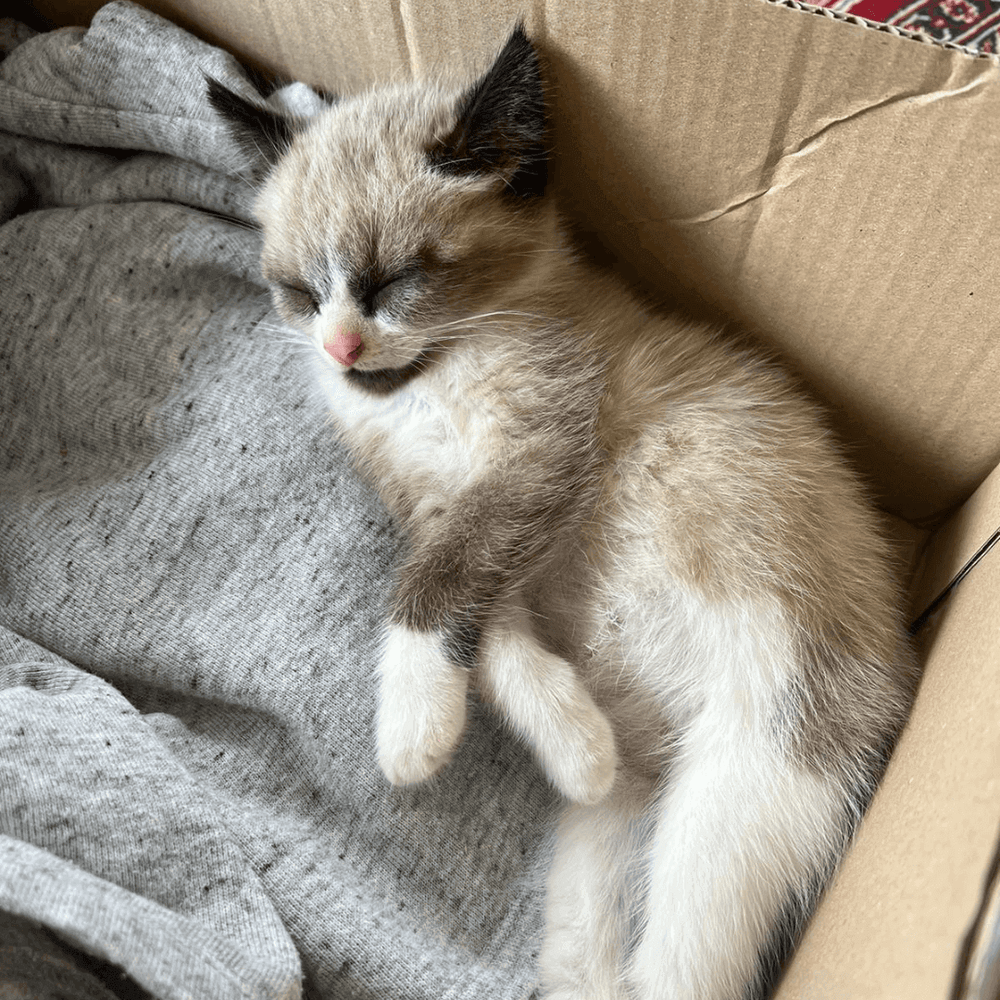
What to do against worms?
Whether infested or not, your kitten must be dewormed. It is generally recommended to deworm your kitten once a month until 6 months, with a dewormer adapted to its age and weight. This can be in the form of a tablet or drops to swallow or in the form of a pipette to administer on the skin. Your veterinarian will give you the appropriate treatment in the event of a proven infection.
Also, make sure that his litter box is always clean. Every time your little companion uses his toilet, remove his droppings afterwards, especially if you have another cat at home to avoid an overgrowth. Remember that our cats, regardless of their age, like to smell everything, including the droppings of other four-legged animals.
An unsuitable diet
Food plays an essential role in the health and well-being of our cats. But when it is unsuitable and especially of poor quality, it can on the contrary cause digestive disorders : gas, constipation, diarrhea, of which a swollen belly is one of the symptoms.
Constipation in cats causes a large and tense belly, in addition to a loss of energy, hard, dry and dark stools. Exactly like for us humans. Several causes can be responsible for constipation, but a diet low in fiber, too rich in minerals and deficient in water is often pointed out.
Your kitten could also suffer from bloating , due to its pâté or kibble containing low-quality proteins. In many foods, we do not find muscle and noble offal, but reconstituted meat (mixture of vegetable and animal proteins), mechanically separated meat (MSM) or mixtures of low-quality pieces with a lot of collagen.
In addition to not providing any health benefits, you should know that these proteins are not all digested by the body as explained in our article on flatulence in cats. When they reach the large intestine, they are putrefied and can thus cause gas and diarrhea.
Also note that kittens have poor digestion of starch. Present in too great a quantity in kibble and pâtés, this carbohydrate can ferment in their large intestine.
If your kitten has a swollen belly and is not suffering from a parasitic infection, it may be on the diet side that you need to pay attention. But again, only your veterinarian will be able to tell you more about the health of your whiskered one.
To learn more, don't hesitate to consult our article on kitten food (from 2 to 12 months). To help you make the right choice, we also share our advice on our blog for choosing the best kibble for your kitten.
Please note: if you change your kitten's diet, make a gentle food transition. This involves gradually integrating the new food into the old one. Find all the steps of the food transition inour complete guide.
Infectious peritonitis
In the most severe cases, a swollen belly can be a sign of infectious peritonitis (PIF) . Caused by a mutation of an intestinal coronavirus, this disease affects very young cats and comes in two forms: wet and dry.
The wet form results in fluid effusions in the abdomen - which makes it swell - causing digestive problems such as diarrhea and vomiting, or in the thorax which generate breathing difficulties.
Clinical signs include a large belly, but also loss of appetite ( the kitten no longer eats ), weight gain and fever.
However, we would like to reassure you that this very serious pathology is quite rare, but once again, consult your veterinarian to rule out this hypothesis.
Our kittens are fragile beings who need special attention. If your kitten's belly problem is treated in time, everything will be back to normal. 💛
A question about our recipes or your kitten? Do not hesitate to contact us at hello@ziggyfamily.com .
The guide to taking care of your kitten
Food, care, behavior, well-being… Find all our advice for taking care of your kitten in our guide.



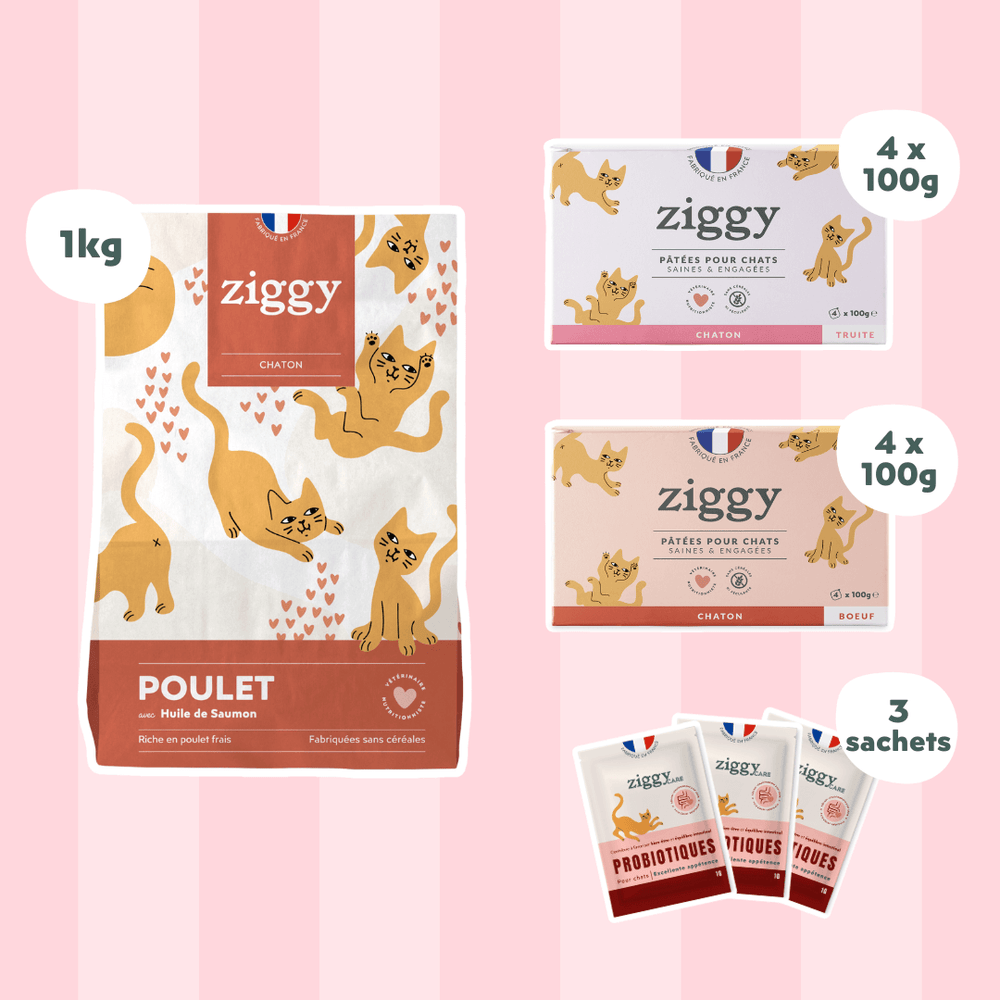
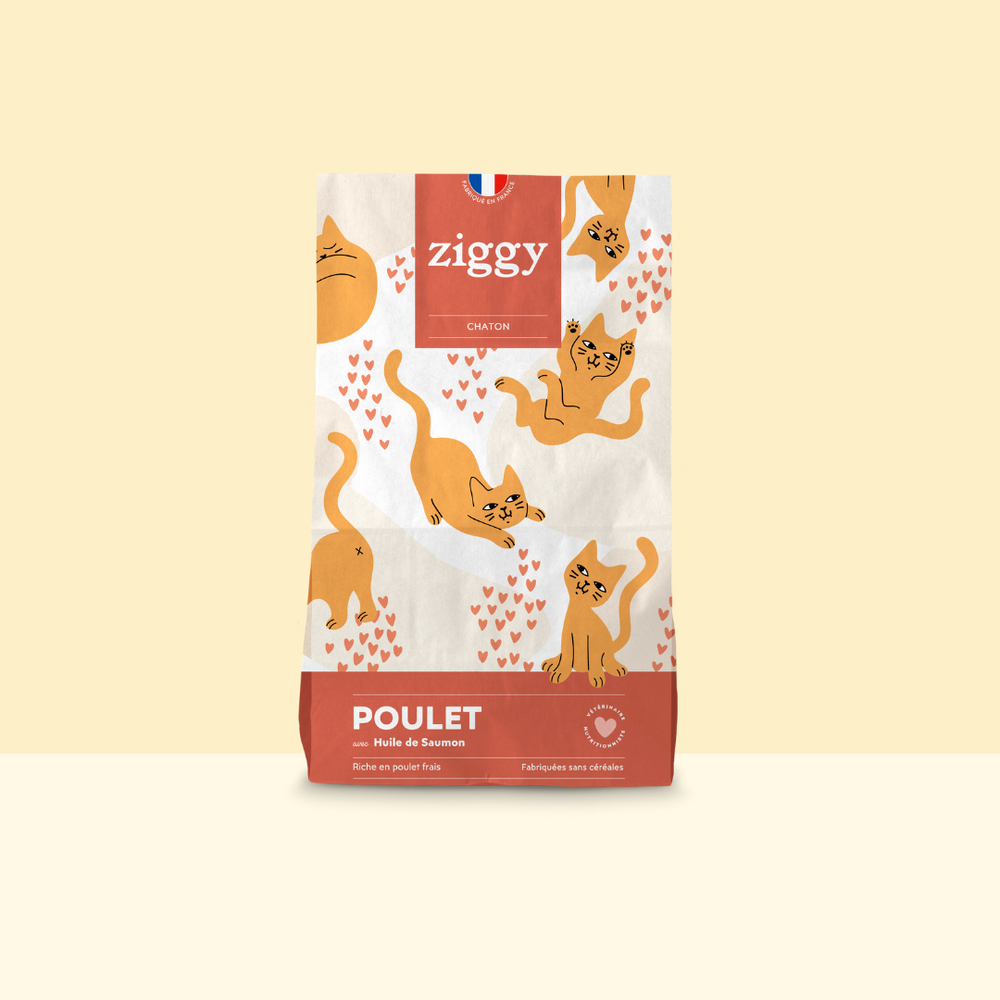
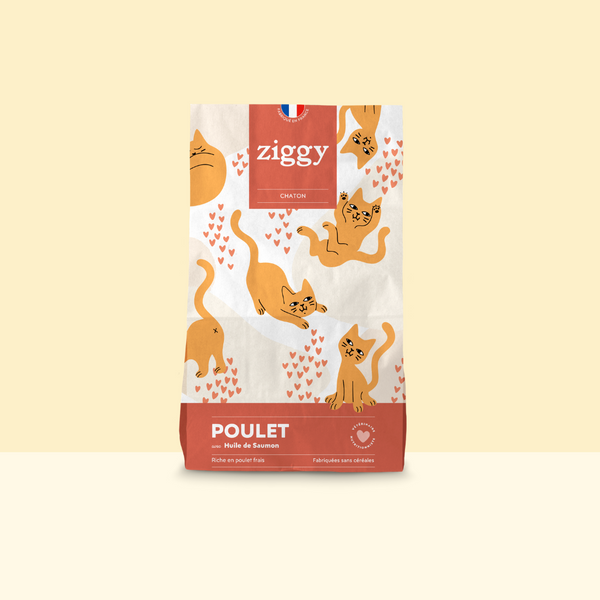
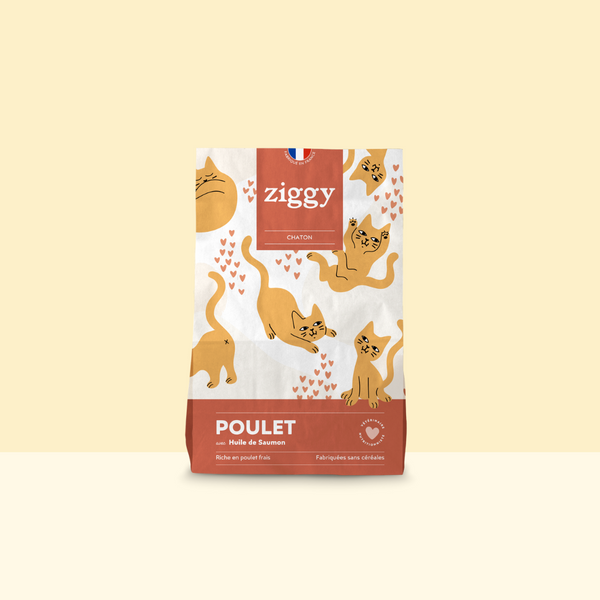


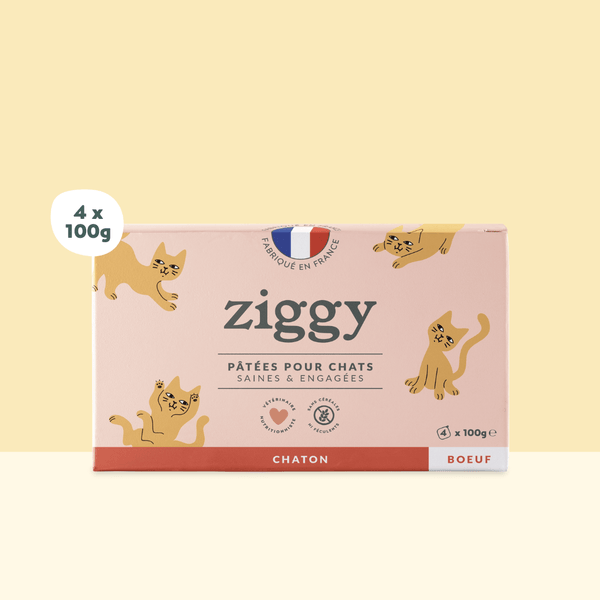
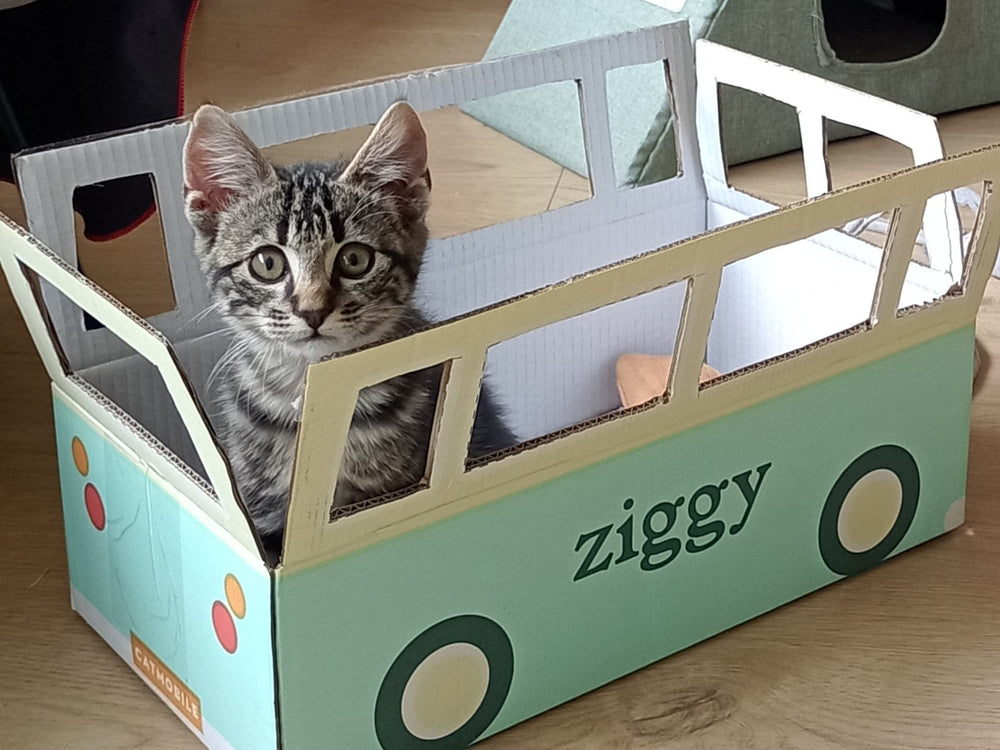


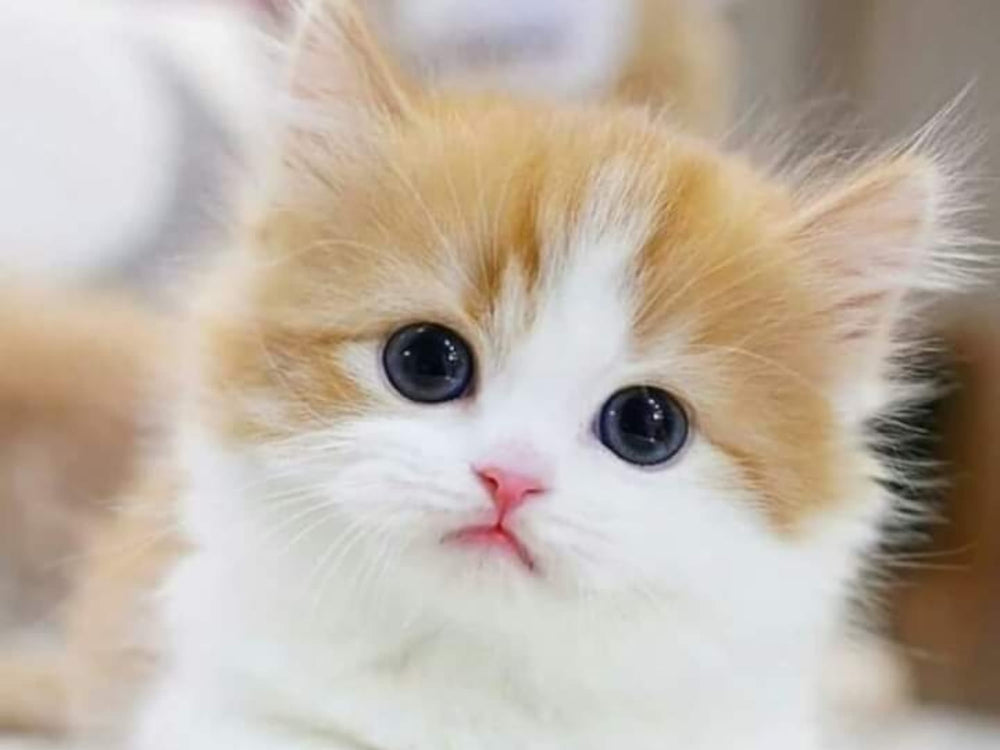
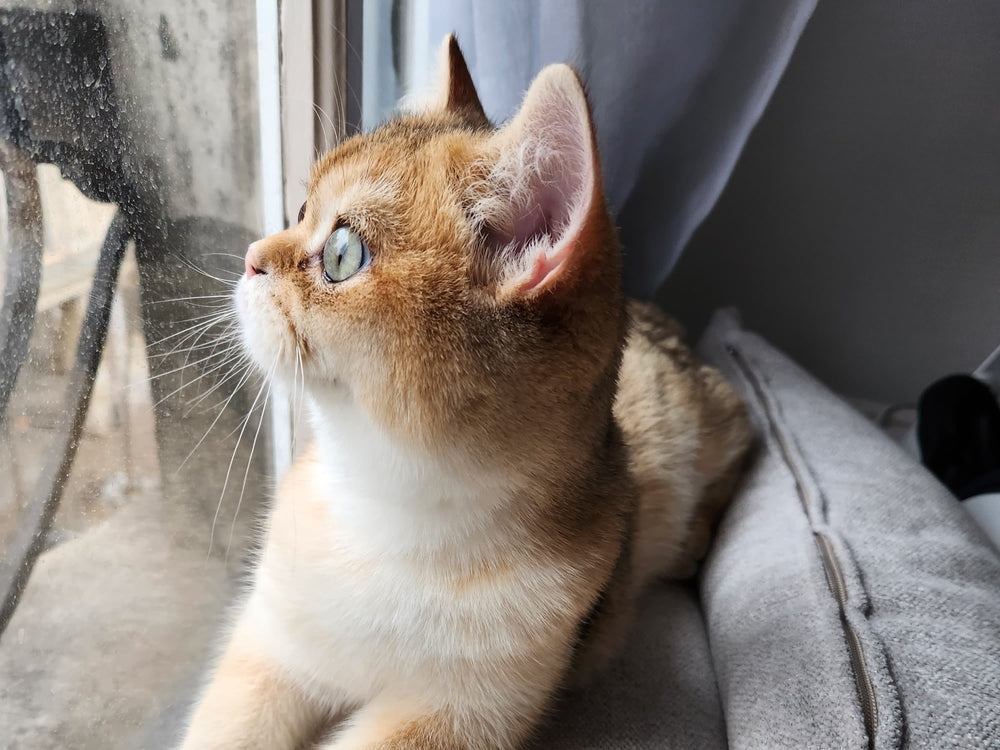
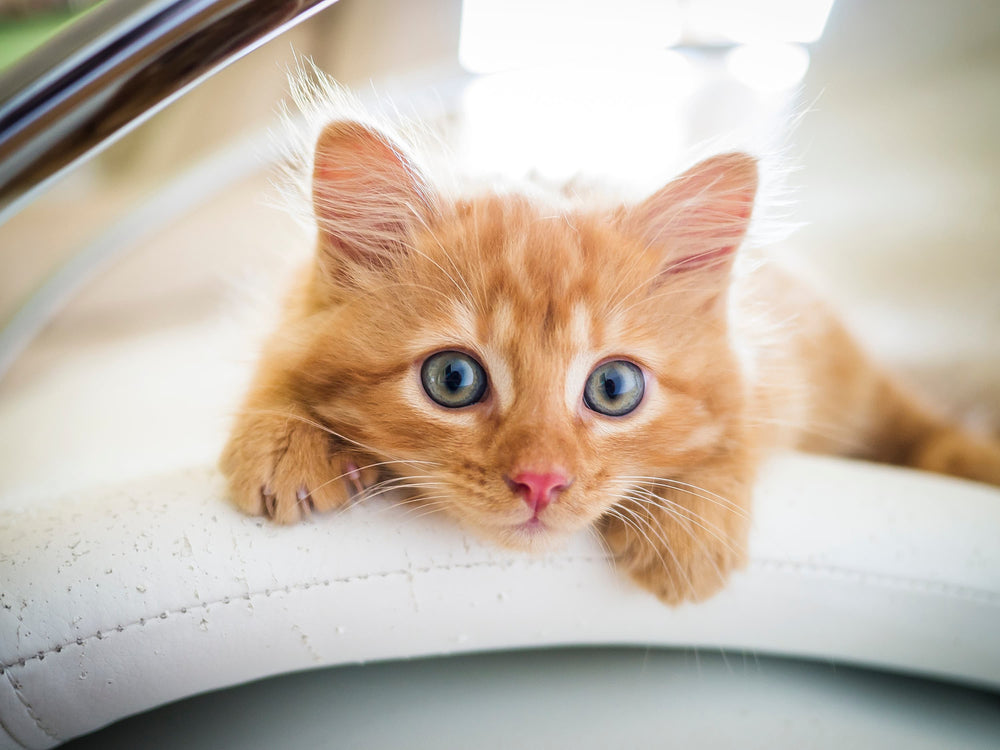
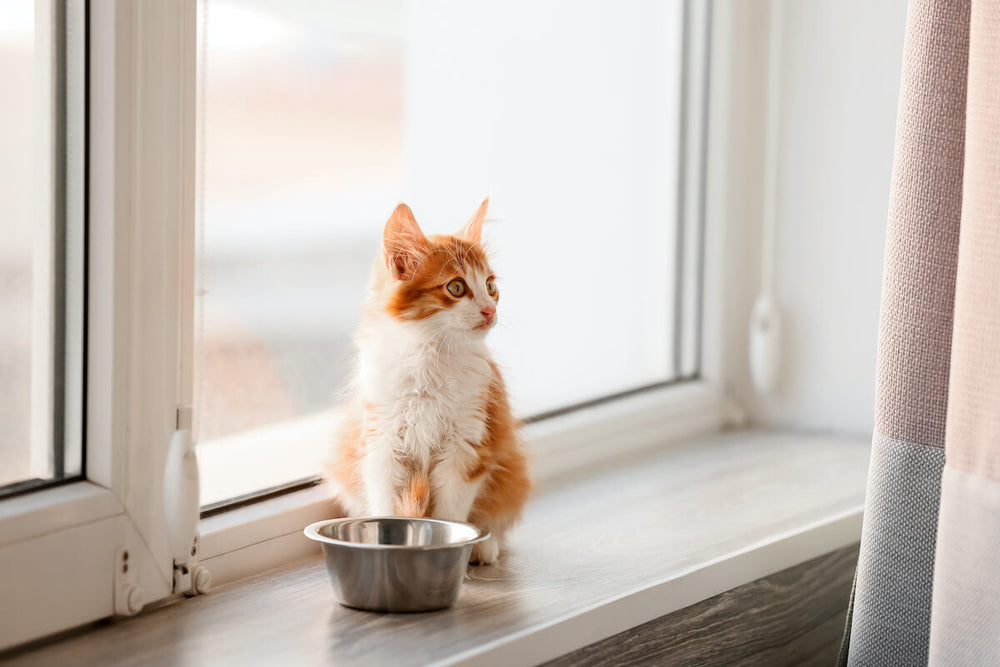
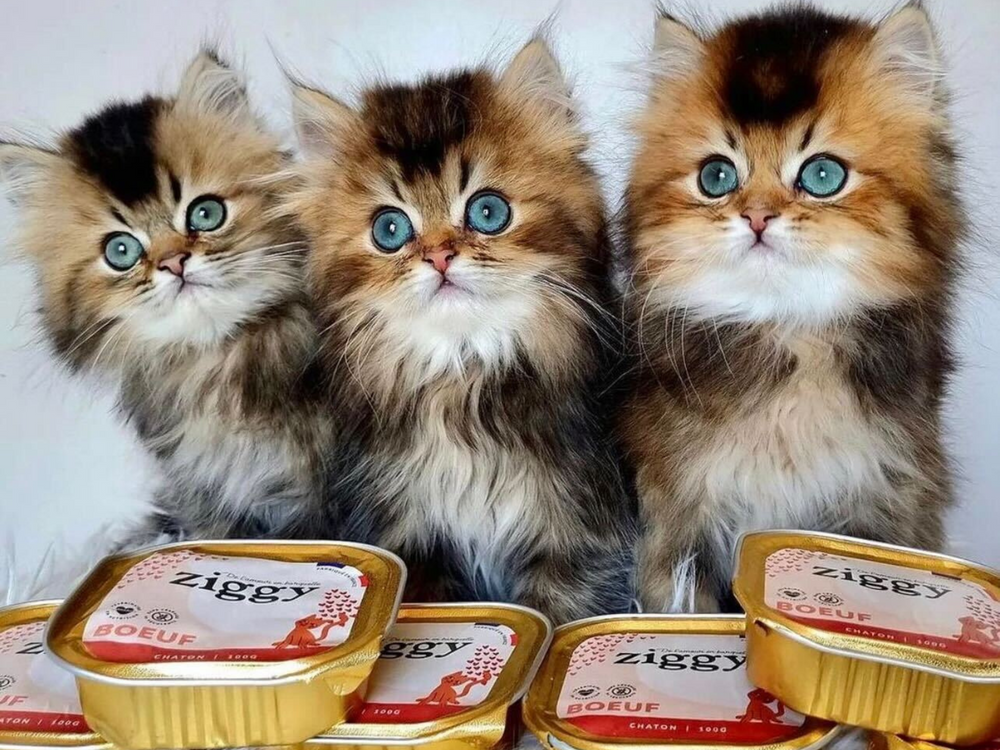
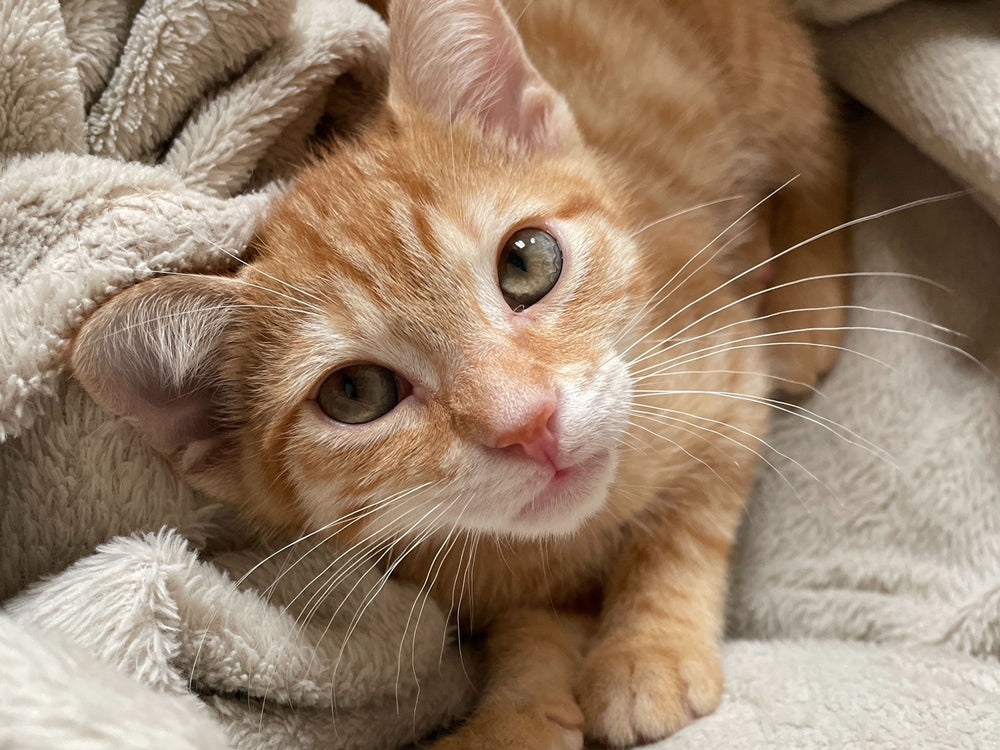
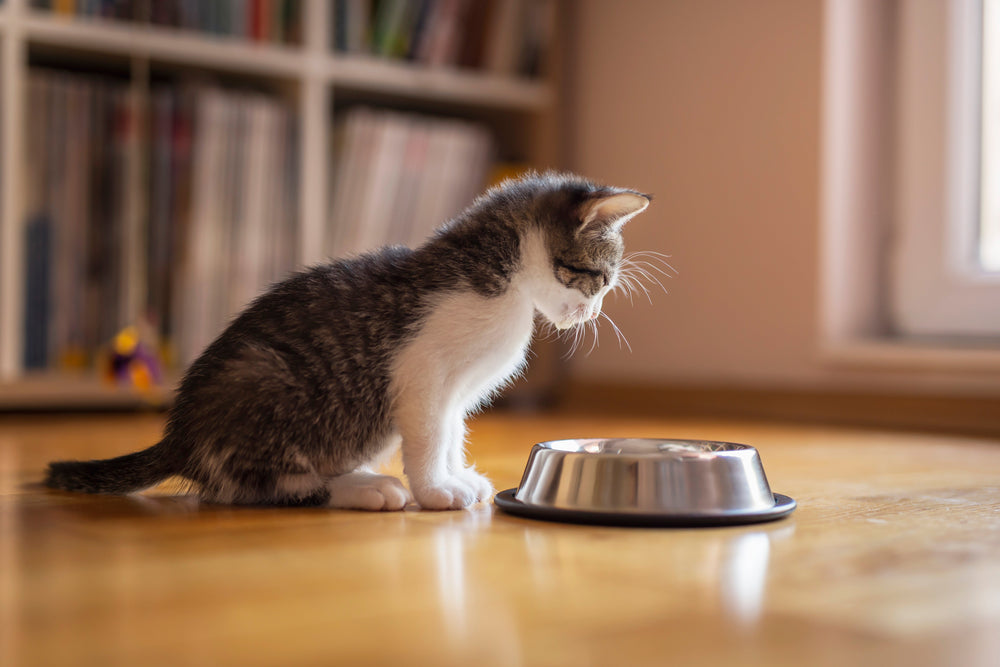
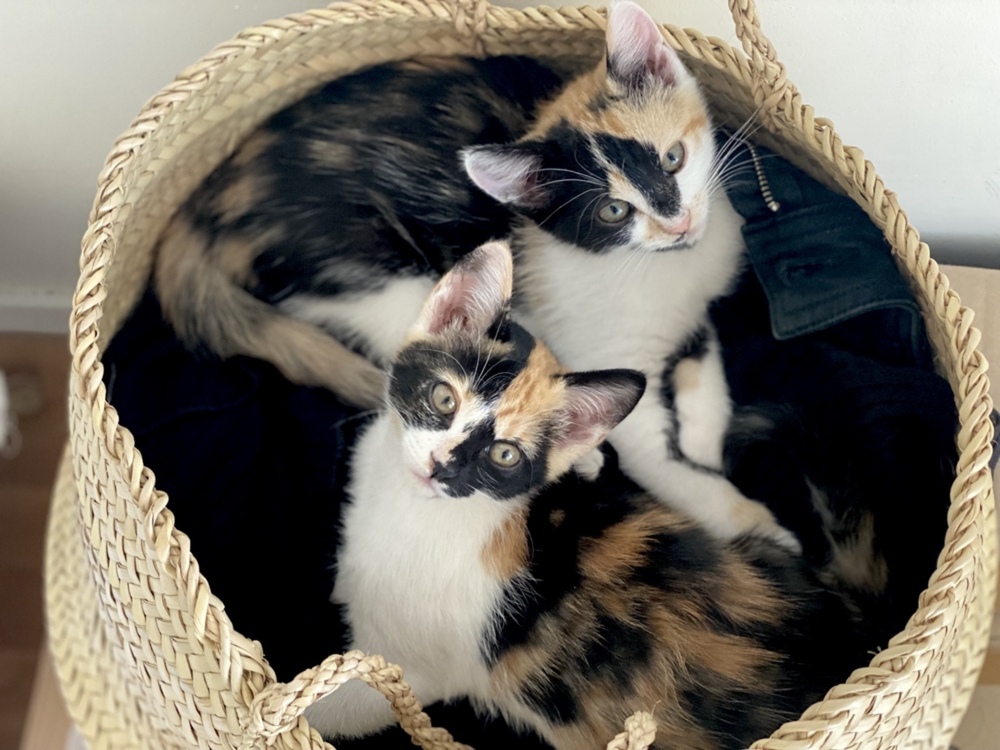
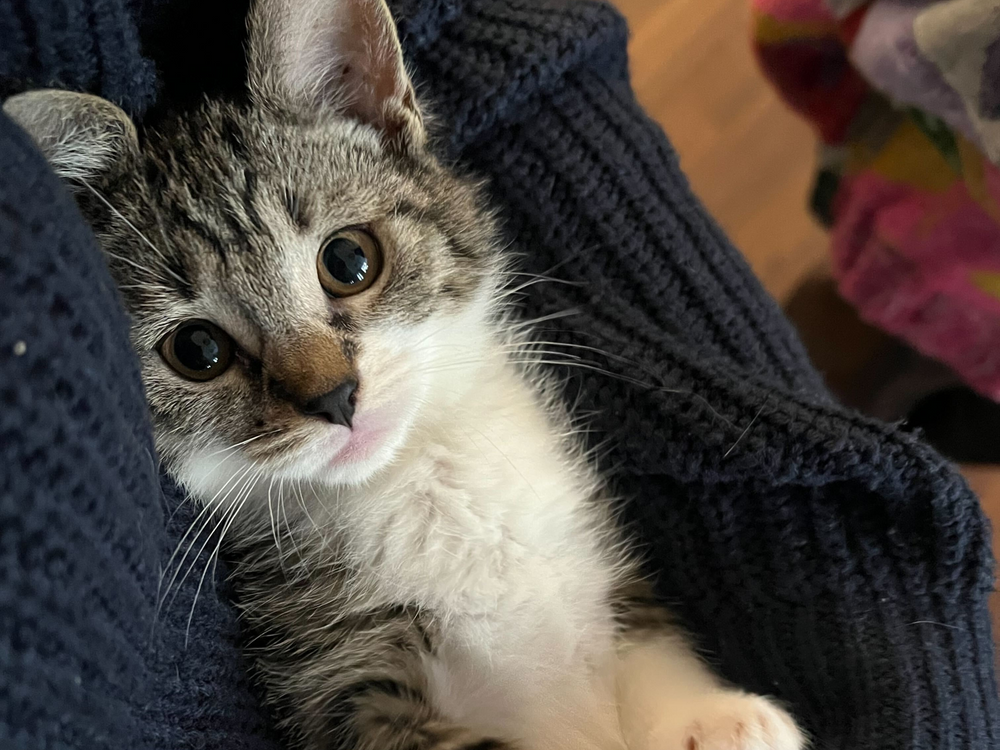
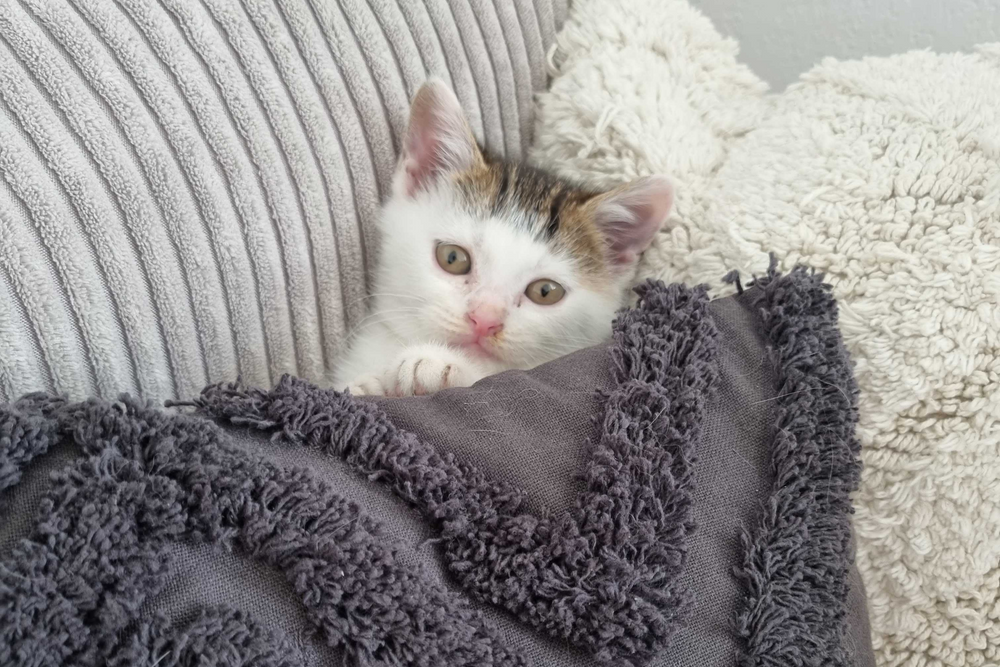
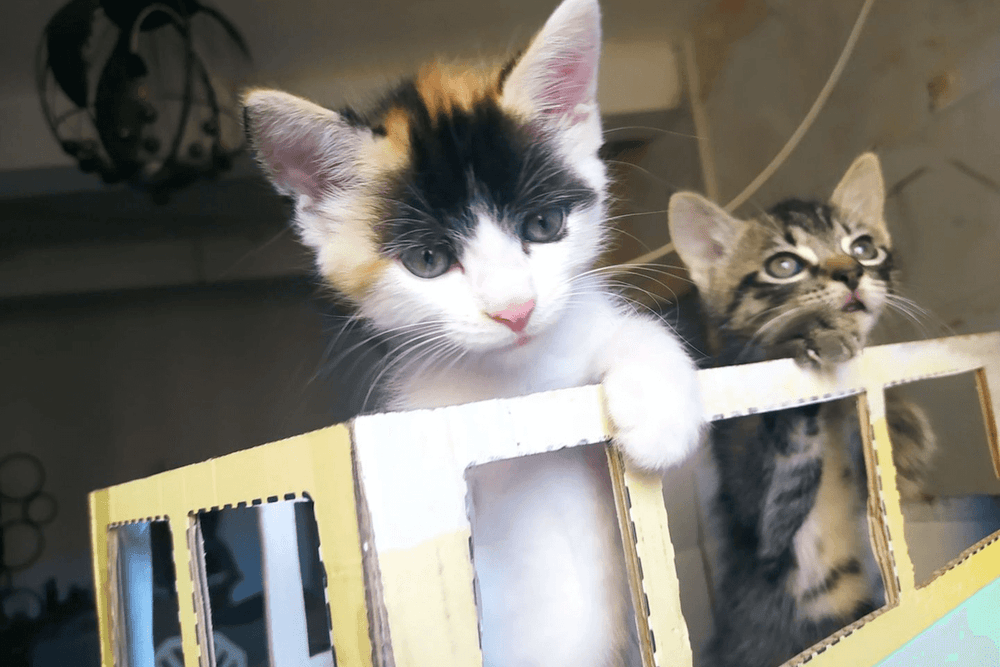
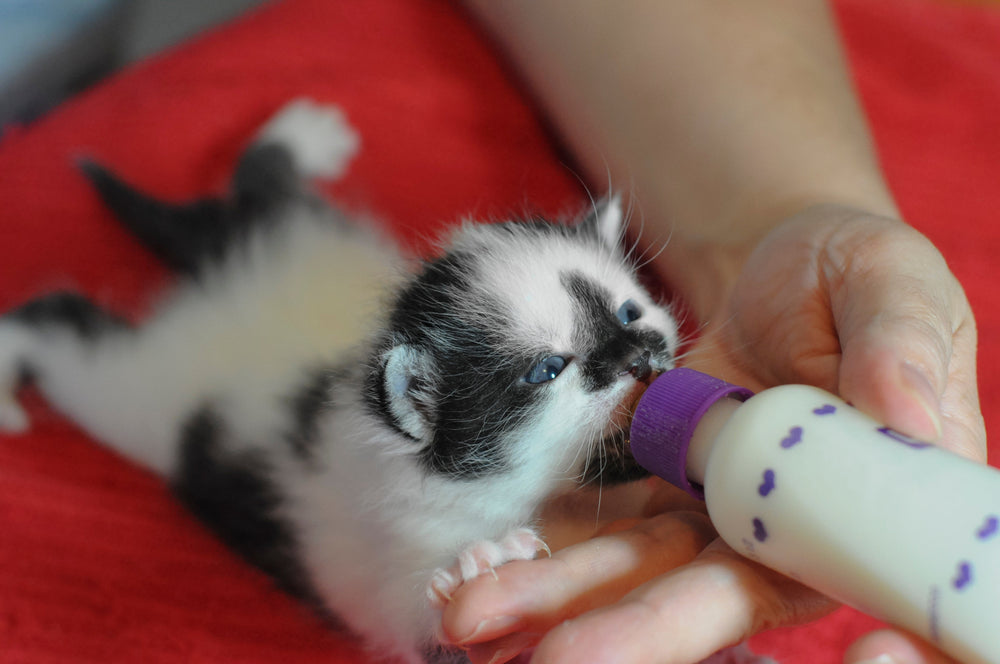
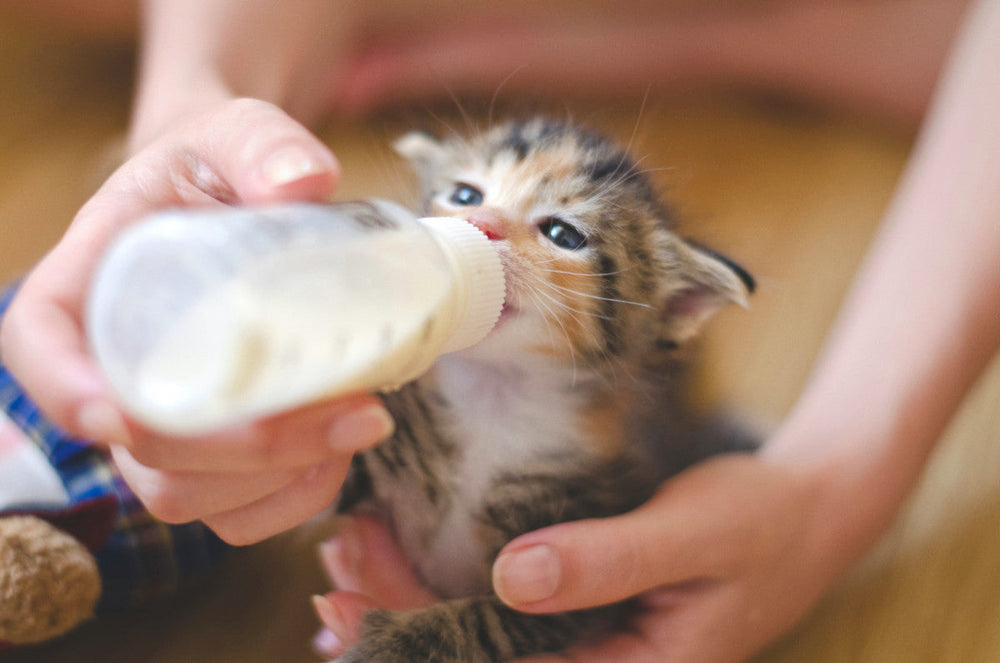
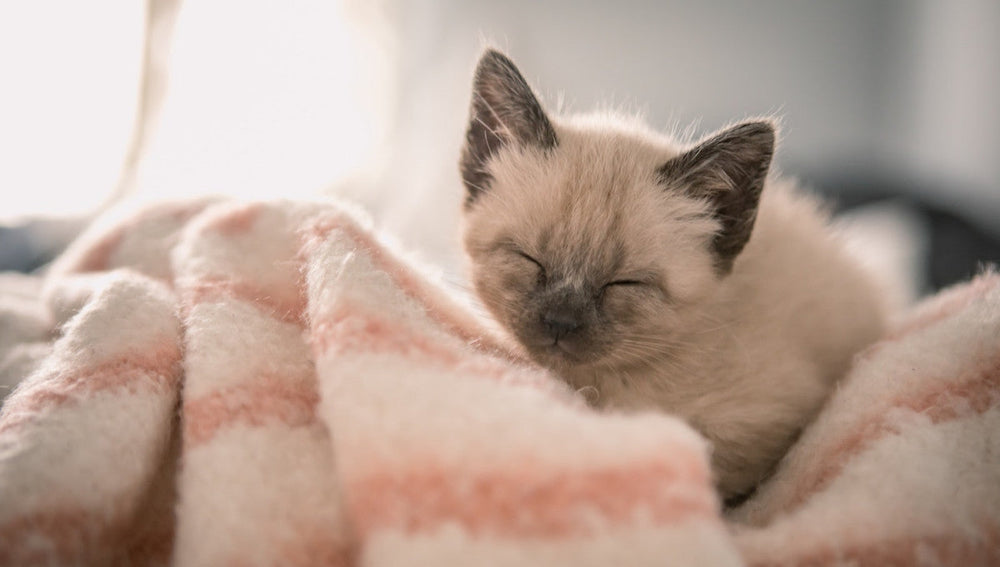


Bonjour Philibel,
Nous ne pouvons malheureusement pas vous répondre… Contactez au plus vite votre vétérinaire, si ce n’est pas déjà fait. Seul votre vétérinaire pourra vous dire ce qu’a votre chaton.
On espère qu’il va bien. N’hésitez pas à nous donner des nouvelles. 💛
L’équipe Ziggy
Bonjour, notre chaton 2 mois a eu le ventre gonflé et de plus en plus gonflé hier et il a commencé à boîter. Aujourd’hui, vers le soir, ces pates devant aussi étaient comme paralisées, il ne pouvant plus marcher et se tenir …Est-ce que ça pourrait être à la cause d’une parasitose ? OU autre chose ? On lui a donné un panacour et après environ 20 minutes, ces pates devant sont revenues à la normale …Mais qu’est-ce qui s’est enfin passé ???Merci pour votre reponse !
Leave a comment